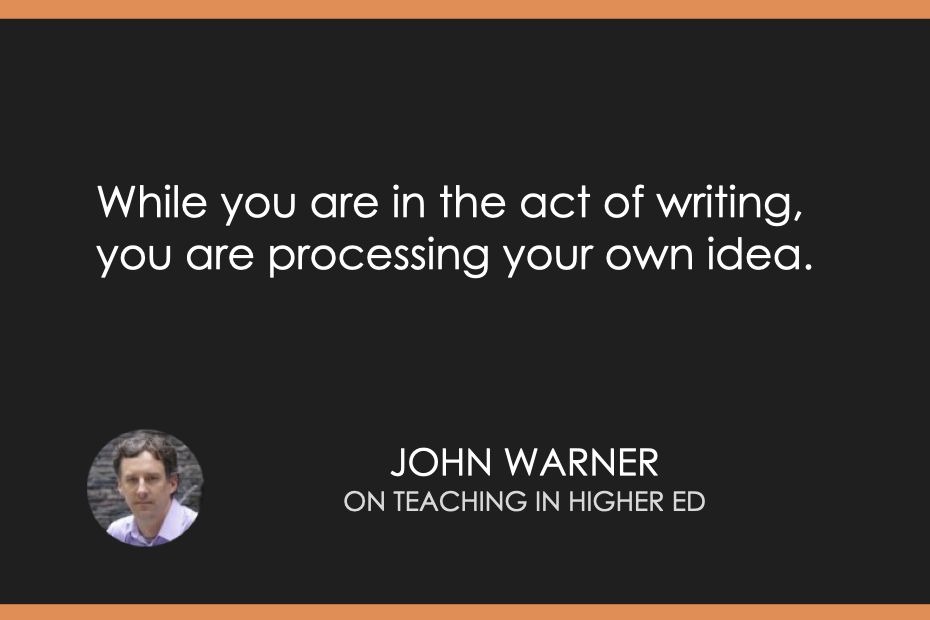
 Teaching in Higher Ed
Teaching in Higher Ed Stressing Pedagogical Principles Over AI Promises
6 snips
Sep 19, 2024 John Warner, an educator passionate about pedagogical principles, discusses the importance of prioritizing teaching methods over AI's allure. He emphasizes the reflective nature of writing and the necessity for authentic engagement in academic work. Warner critiques the use of historical figure chatbots, arguing they dilute educational quality and misrepresent history. He also introduces 'Franken Stories,' a creative writing game that fosters collaboration and joy in the writing process, while advocating for a balanced approach to technology in education.
Chapters
Transcript
Episode notes
1 2 3 4 5 6
Intro
00:00 • 2min
Navigating Teaching Evaluations and AI in Writing
02:23 • 18min
Reviving Creativity with Franken Stories
20:00 • 8min
The Pitfalls of Historical Figure Chatbots in Education
27:38 • 5min
Navigating Fears and Embracing Joy
33:05 • 6min
The Power of Poetry and Storytelling
39:14 • 3min

